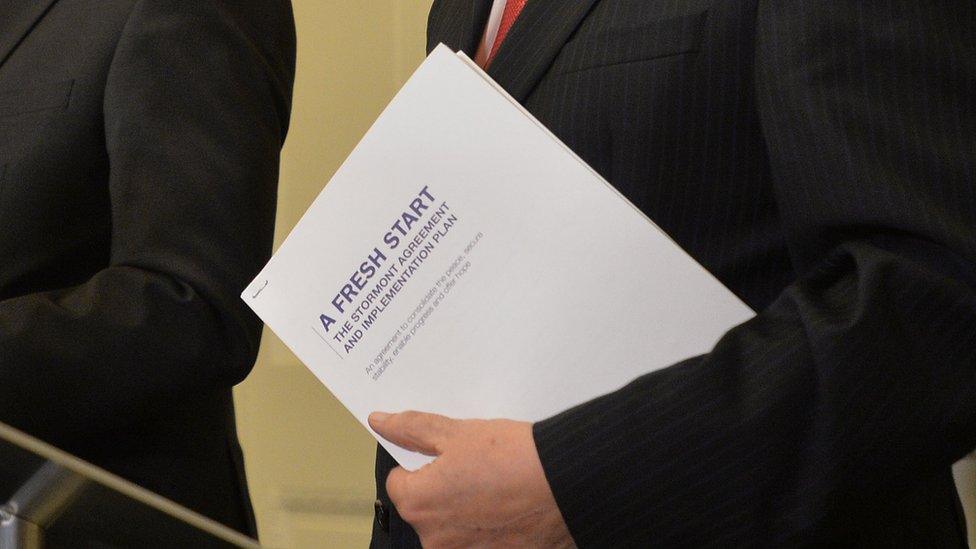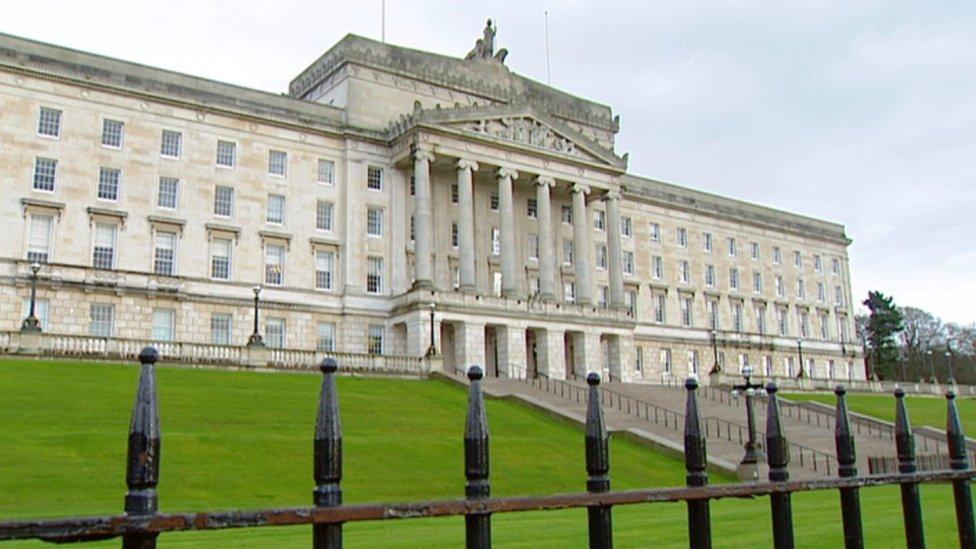Stormont 2016/17 budget: Health spending to rise by 1%
- Published
Finance Minister Arlene Foster says allocating more money to the Department of Health was a key objective of the executive's budget for next year.
Health spending will rise by about 1% in real terms as part of the Northern Ireland Executive's 2016/17 budget.
Education and policing also have their budgets protected, to a lesser extent, under the paper approved by ministers on Thursday.
However, the new Department of Agriculture and Environment will face a cash cut of almost 6%.
Of the £60m that had been allocated to mitigate tax credit cuts, half will now go to protected departments.
Funding
The other £30m will be held until the outcome of the Evason review of welfare reform mitigation.
But it is not certain that this money will be used for welfare mitigation.
Almost £50m has been allocated to a voluntary exit scheme for teachers.
That scheme is part of the bigger public sector redundancy scheme that began with the Civil Service this year.
The amount of money Stormont gets from Westminster - known as the block grant - will fall by about 1% next year.
Last month, the Stormont Executive received an additional funding package from the UK government as part of the Fresh Start, external deal.
It is worth as much as £565m over the next five years.
'Sustainable footing'
Stormont Finance Minister Arlene Foster said the budget had been constructed "in very challenging circumstances".
"We have delivered on the Fresh Start agreement, and the executive has demonstrated its commitment to put our finances on a sustainable footing," she said.
"The one-year budget will give new departments and new ministers a stable, balanced platform to determine priorities and funding allocations post the May election for a multi-year budget from 2017-18 to 2019-20."
Mrs Foster said that the "difficulties" posed by reducing Stormont departments from 12 to nine meant there would be "additional budget flexibilities available to new ministers in the first monitoring round of the year".
She said that protecting health spending and some other key services "puts greater pressure on other departments", but the maximum reduction faced in any department's budget was 5.7%.
Earlier this month, Stormont departments were told to plan for cuts of up to 10% in their day-to-day budgets next year.
Mrs Foster said they had "created a stable, balanced platform for the new incoming executive to take its time in constructing a multi-year budget.
"Although the outcome may prove challenging, the position is significantly better than previously anticipated."
- Published25 November 2015

- Published23 November 2015

- Published17 November 2015

- Published17 November 2015
